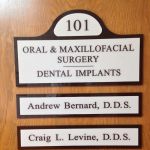Oral Hygiene: An Overview
Oral hygiene is the practice of keeping your mouth clean and disease-free. It encompasses daily brushing, flossing, and regular visits to the dentist. A proper oral hygiene routine is essential for maintaining healthy teeth and gums. Poor oral hygiene can lead to various problems such as bleeding gums, tooth decay, and chronic bad breath.
The Importance of Oral Hygiene
Oral hygiene is preventative care. By taking good care of your teeth and gums, you can prevent oral health issues like cavities, gum disease, and bad breath. Moreover, oral health is closely linked to whole-body health. For instance, infections in the mouth can spread through the bloodstream and cause problems like heart disease and stroke. Research shows that conditions such as gingivitis and periodontitis can contribute to other health conditions, including cardiovascular disease and stroke. Conversely, certain health conditions like diabetes, osteoporosis, HIV/AIDS, and Alzheimer's disease can have a negative impact on your teeth and gums.
Signs of Poor Oral Hygiene
There are several warning signs that indicate potential oral health problems. Common signs of poor oral hygiene include bleeding gums, tooth decay, chronic bad breath, loose teeth, gum recession, mouth sores that don't heal, toothache, swelling of the jaw, and gingivostomatitis. Recognizing these signs early is crucial for timely treatment and prevention of further complications.
Improving Oral Hygiene
To enhance your oral hygiene, follow these general instructions. Use fluoride toothpaste and a soft-bristled toothbrush, placing it at a 45-degree angle toward your gums to remove plaque and bacteria. Floss regularly to clean the spaces between your teeth. Don't forget to brush your tongue to remove bacteria. Use antibacterial mouthwash and visit your dentist for routine exams and cleanings. Avoid smoking as it is a major cause of gum disease and oral cancer.
Oral Hygiene Products
When choosing oral hygiene products, look for the ADA Seal of Acceptance. Your dentist can provide personalized recommendations based on your specific situation. Remember, the best oral hygiene routine is one that you can adhere to consistently.
Risks and Benefits
The advantages of good oral hygiene are numerous. It leads to healthier teeth and gums, a beautiful smile, fresher breath, reduces the need for dental work, lowers the risk of various diseases, and reduces the risk of oral cancer. Additionally, it is more cost-effective in the long run compared to restorative or emergency dental care.
Recovery and Outlook
The frequency of dental visits for exams and cleanings depends on your individual circumstances. Many people need cleanings every six months, but those prone to cavities or gum disease may require more frequent appointments. Ask your dentist for a personalized schedule that suits your needs.
When to Call the Doctor
If it's been more than six months since your last dental cleaning, or if you experience warning signs such as tooth pain, bleeding gums, loose teeth, or chronic bad breath, schedule a dental consultation promptly. Early treatment is essential for eliminating harmful bacteria and improving your overall health.
Additional Information
There are billions of bacteria in our mouths at any given time, and plaque formed by these bacteria can cause tooth decay and gum diseases. Sugary and starchy foods contribute to plaque formation. To prevent tooth decay, brush and clean between your teeth daily, use an antimicrobial toothpaste with fluoride, and floss. Tooth decay is actually an infectious disease, and proper brushing and flossing techniques, as recommended by the American Dental Association, are crucial. Regular dental visits are also important for a comprehensive evaluation and treatment plan.
In conclusion, oral hygiene practices are of paramount importance for maintaining a healthy mouth and overall well-being. By adhering to daily brushing, flossing, and regular dental visits, you can prevent oral health problems, enjoy a beautiful smile, and reduce the risk of various diseases. It's a simple yet highly effective way to take charge of your health and ensure a lifetime of good oral health.

 Elmer Hilo, DDS0.0 (0 review)
Elmer Hilo, DDS0.0 (0 review) Above & Beyond Dentistry & Implants4.0 (540 review)
Above & Beyond Dentistry & Implants4.0 (540 review) Riverside Oral Surgery4.0 (250 review)
Riverside Oral Surgery4.0 (250 review) Campfire Pediatric Dentistry5.0 (197 review)
Campfire Pediatric Dentistry5.0 (197 review) Lindenhurst Village Dental4.0 (46 review)
Lindenhurst Village Dental4.0 (46 review) Levine Craig L DDS0.0 (0 review)
Levine Craig L DDS0.0 (0 review) The Importance of Oral Health Education During Pregnancy for a Healthy Pregnancy
The Importance of Oral Health Education During Pregnancy for a Healthy Pregnancy Best Tips for Brushing Your Teeth Properly for Healthy Gums: Essential Techniques for Oral Health
Best Tips for Brushing Your Teeth Properly for Healthy Gums: Essential Techniques for Oral Health Why Skipping Dental Checkups Can Lead to Bigger Oral Health Problems
Why Skipping Dental Checkups Can Lead to Bigger Oral Health Problems Advantages of Porcelain Dental Restorations
Advantages of Porcelain Dental Restorations How Can Diabetes Cause Tooth and Gum Problems? Preventing and Managing Oral Health Issues
How Can Diabetes Cause Tooth and Gum Problems? Preventing and Managing Oral Health Issues Healthy Habits for Promoting Good Oral Health and Hygiene: Tips for a Healthy Smile
Healthy Habits for Promoting Good Oral Health and Hygiene: Tips for a Healthy Smile